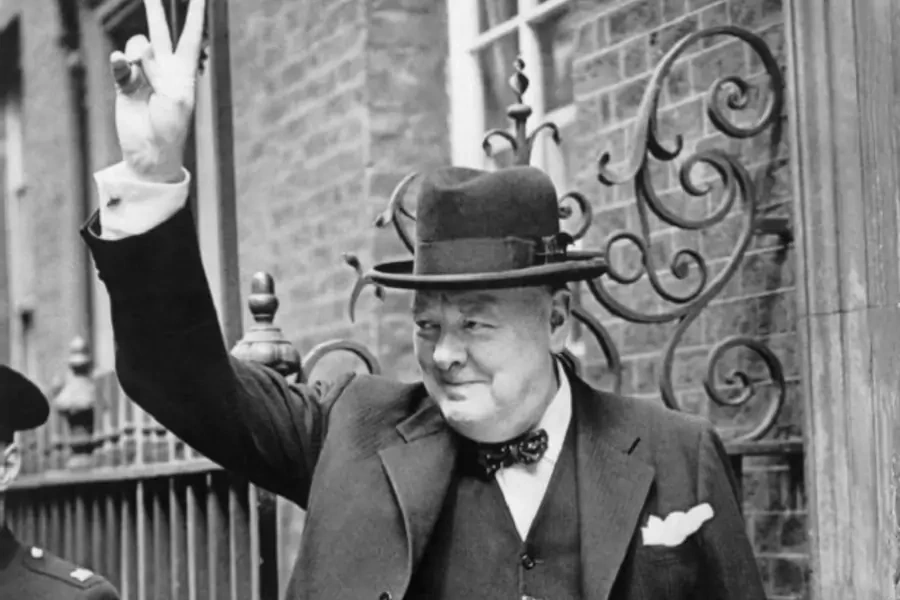TWE Remembers: Winston Churchill’s “Iron Curtain” Speech

Politicians give speeches all the time. Most of what they say is quickly forgotten, or perhaps better never said in the first place. But occasionally a politician gives a speech that defines an age. That is precisely what happened on March 5, 1946 when Winston Churchill spoke at tiny Westminster College in Fulton, Missouri. He gave the world what became the central metaphor of the cold war: the iron curtain.
Churchill was in Missouri at the encouragement of President Harry Truman, who had grown up down the road in Independence and who introduced him when he spoke at Westminster College. “Winnie” was no longer prime minister by the time he came to campus. In July 1945, just two months after he led Britain to victory over Germany, British voters tossed him and his Conservative Party out of power. But his electoral defeat had hardly dimmed his star power in the United States.
More on:
Churchill enjoyed the attention that the Americans gave him. He toyed with the press in the run-up to the speech. “I think ‘No Comment’ is a splendid expression,” he told reporters who asked what he would say in Fulton. “I am using it again and again.”
When the day came, Churchill delivered remarks that would give the press something to write about. The title of his speech was “The Sinews of Peace," but its primary message was that the United States and Great Britain needed to confront an increasingly aggressive Soviet Union. One sentence in particular stood out:
From Stettin in the Baltic to Trieste in the Adriatic, an iron curtain has descended across the Continent. Behind that line lie all the capitals of the ancient states of Central and Eastern Europe.
Churchill rejected “the idea that a new war is inevitable; still more that it is imminent.” But he did believe that the Soviets sought “the fruits of war and the indefinite expansion of their power and doctrines.” The only proper response was to hold fast. “I am convinced that there is nothing they admire so much as strength.”
Churchill knew that his stern anti-Soviet remarks would make a splash. As he left the auditorium he told the president of Westminster College that he hoped the speech had “started some thinking that will make history.”
That it did, though at first not in the direction that Churchill hoped. Newspapers across the country criticized him for needlessly antagonizing Moscow; the Chicago Sun called his remarks “poisonous." And while most Americans today intuitively understand that a “special relationship” exists between Washington and London, when Churchill introduced the term in Fulton many Americans saw it as a threat to the newly created United Nations Organization. When Churchill stopped in New York on his way back to Britain, protesters outside his hotel chanted “Winnie, Winnie, go away, UNO is here to stay.”
More on:
Soviet leader Joseph Stalin also panned Churchill’s speech. He told Pravda in an interview that the New York Times reprinted that Churchill’s talk of a “fraternal association of English-speaking peoples” amounted to a “call to war with the Soviet Union” and reflected a racial theory of English supremacy no different than Nazi notions of German supremacy. In Stalin’s words, Europeans were not interested in “exchanging the lordship of Hitler for the lordship of Churchill.”
Stalin’s complaints carried no weight with President Truman. But the American public’s unhappiness with what Churchill had said did. To defuse his domestic political problem, Truman insisted that he had not known what Churchill was going to say (though he did). And to balance things out, he invited Stalin to visit the United States (calculating, correctly as it turned out, that “Uncle Joe” would say no.)
Despite the public disavowals, Churchill’s speech influenced the Truman administration’s emerging thinking on how to deal with Moscow. Just eleven days earlier George Kennan had sent his famous “Long Telegram,” arguing that the Soviets could not be won over with promises and concessions. And Truman’s own dealings with Stalin at Potsdam had convinced him that the Soviet leader had more respect for the closed fist than the open hand. So Churchill accomplished what he had set out to do at Westminster College. His “Iron Curtain" speech started people thinking and made history.
 Online Store
Online Store